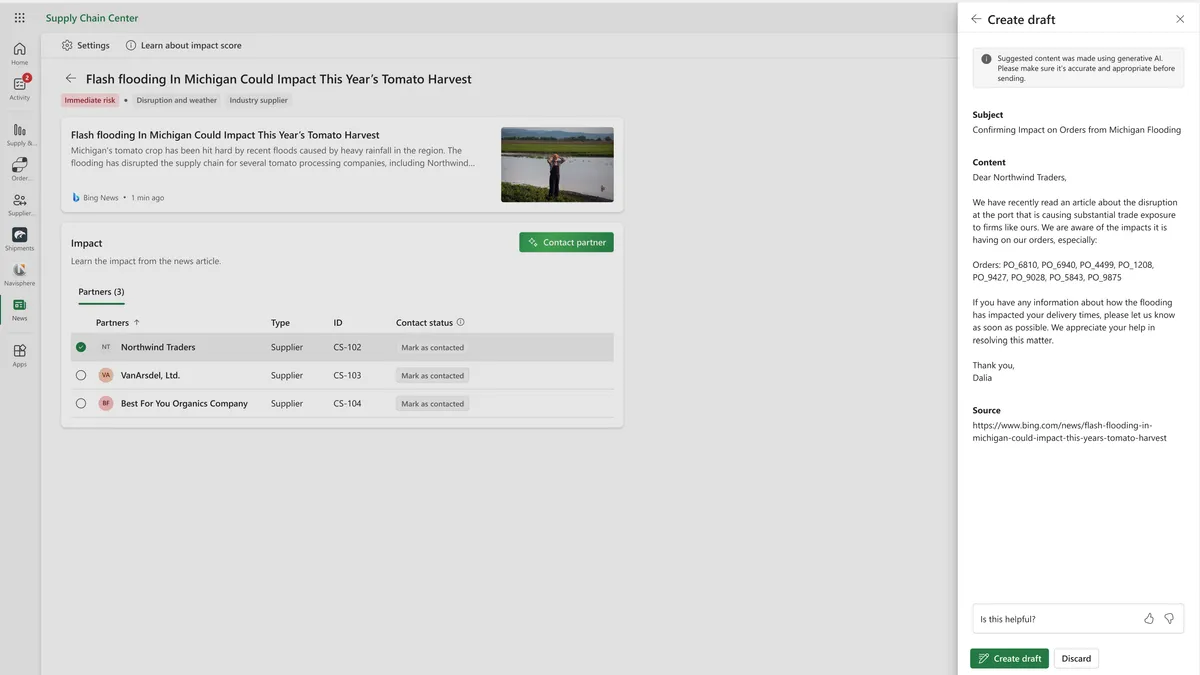Dive Brief:
- Microsoft introduced new artificial intelligence capabilities to its supply chain management platform last week that will allow shippers to flag and respond to potential disruptions.
- The feature, called Dynamics 365 Copilot, is part of a wider push to offer businesses across industries interactive, AI-powered assistance. Supply chain managers can use Copilot within Microsoft’s Supply Chain Center platform to track potential risks such as weather, and then generate predictive insights.
- Once Copilot flags an external risk, supply chain planners can then draft an email to suppliers using AI to send alerts and mitigate potential disruptions, Ray Smith, vice president of supply chain, business applications and platforms, told Supply Chain Dive.
Dive Insight:
Copilot, which can also be applied to other Microsoft business applications, aims to help busy supply chain managers quickly make sense of massive amounts of data, Smith told Supply Chain Dive.
When you’ve got large volumes of data and busy supply chain managers, AI is needed to help elicit problems and risks, and propose mitigation plans, he added.
“A lot of people in the supply chain would say they don’t have time … to look at dashboards if there’s potential data there, let alone engage the suppliers in something that potentially may happen,” Smith said. “The generative AI — the email, communications and business contexts — allows us to really expedite that mitigation and the engagement with the suppliers.”
First, the AI algorithm scans news articles and takes other steps to identify any potential risk that may impact suppliers or partners across a network, such as geopolitical or financial risk. From there, an AI-drafted message can be sent to suppliers asking whether they expect any disruption and to confirm if purchase orders will be impacted.
“The supplier can then close the loop by replying back, and collaborating,” Smith said.
Microsoft initially launched its Supply Chain Center in November as a command center that unifies data across ERPs and third-party management solutions to help solve existing supply chain challenges.
Other players in the tech space have also been looking to pool and utilize data to promote supply chain visibility. That includes Amazon Web Services, which launched a cloud application in November.
More recently in January, software company Oracle launched new updates to its Transportation Management and Global Trade Management platforms, part of its Oracle Fusion Cloud Supply Chain Management application. The company, which updates its SCM capabilities every quarter, intends to further enhance its sustainability features in the second half of 2023.















